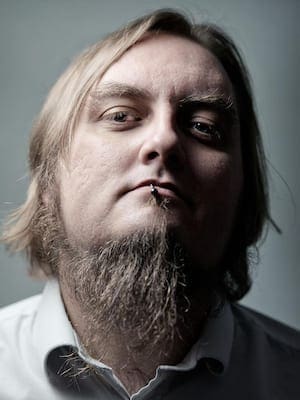Despite the undeniable fact that Christians are an “endangered species” in the Middle East, Martin Accad of the Arab Baptist Theological Seminary (ABTS) suggested that a narrative that sees all Muslims as predators waiting to kill Christians is profoundly unhelpful.
Most religious people in the region – Muslims, Jews, Christians and others – make up what Accad called a “silent majority” that is “tired of fanaticism but not attracted to a secularist solution.”
Accad, himself an Arab Christian born in Lebanon, said that the narrative of a threatened Christian minority in the Middle East needs to change if positive change is to be made a reality in the region.
He said that though most Middle Eastern Christians live daily lives among Muslim neighbors who, like them, seek only a peaceful life in which they can provide for their families, sanitizing or optimistically mythologizing past and present hurts was a mistake.
Accad argued that Jews, Muslims and Christians needed to remind each other of their crimes and of historical and current injustices if true dialogue is to be achieved.
But he said that the silent majority had to recognize that their religions should be defined by the way the majority of their adherents behave: pursuing peace and love.
In response to an anticipated criticism of “smoothing over real theological differences,” Accad addressed the issue of ISIS – a group that, he said, many point to as the final silencer of any optimism about Islam’s “true nature.”
Accad said that he refused to buy into ISIS’ narrative of the Middle East, saying, “It is with my peaceful and loving Muslim friends that I care to explore the true meaning of Islam.”
Accad spoke of a “network of sleeper cells” made up of peaceful and loving religious people around the world, who need to rise up and neutralize the effect of a “reckless minority” who would promote violent fanaticism or a view that painted entire religions in the hues of violence and terror.
“Every religion holds just as much DNA for peace as for violence,” he said, suggesting that true dialogue between religions should not eliminate distinctiveness and difference, but that, “amidst our differences, we stand for love and a search for peace.”
 Jonathan Langley is the editor of BMS World Mission’s Mission Catalyst magazine. A version of this news article about Accad’s speech at the 2014 Catalyst Live event first appeared on the BMS World Mission website. It is used with permission. You can follow him on Twitter @JontyLangley and BMS @BMSWorldMission.
Jonathan Langley is the editor of BMS World Mission’s Mission Catalyst magazine. A version of this news article about Accad’s speech at the 2014 Catalyst Live event first appeared on the BMS World Mission website. It is used with permission. You can follow him on Twitter @JontyLangley and BMS @BMSWorldMission.
Editor’s note: A two-part series by Accad on this topic is available here. An EthicsDaily.com Skype interview with Sayyid Syeed from the Islamic Society of North America discussing a Muslim response to ISIS is available here. A photo news story from Catalyst Live 2014 is available here. Additional news articles about Catalyst Live 2014 presentations are available here.

